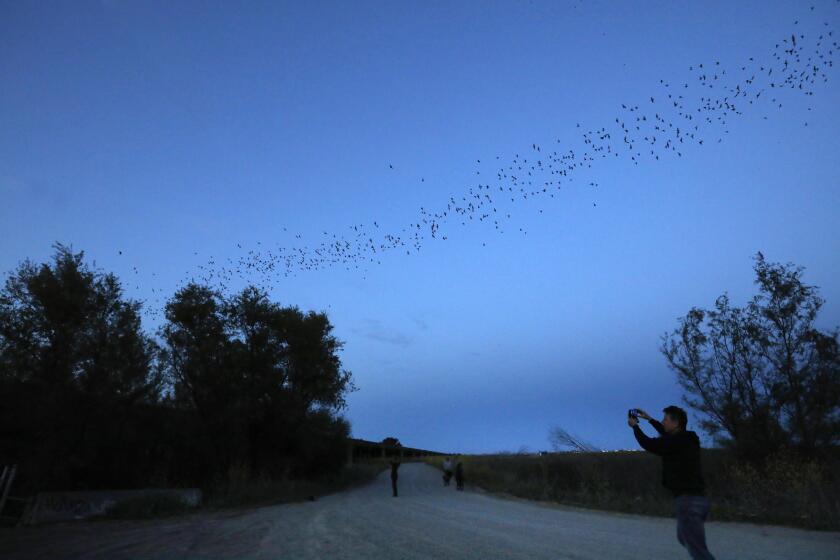Job-Training Agency’s Suit Accuses 3 of Bilking $39,000; They Deny It, Blame Politics
HUNTINGTON PARK — A Cudahy city councilman and a community college trustee have been named in a civil suit alleging that they and one other person misused money from a nonprofit agency that trains and finds jobs for needy residents in five southeast area cities.
According to the suit filed by the agency last month in Norwalk Superior Court, Councilman John O. Robertson Jr., Rio Hondo Community College board Trustee Ralph Pacheco and Maynard Law, former executive director of the Hub Cities Consortium, bilked the consortium of $39,000 from August, 1988, to February of this year.
In interviews last week, Pacheco, Robertson and Law said they are bewildered by the charges, and all three vehemently denied being involved in a scheme to defraud the consortium.
“I can’t believe this,” said Pacheco, whose Whittier-based management consultant firm is also named in the suit. “What kind of madness has come over the board and staff members at Hub Cities?”
Robertson said that no facts support the consortium’s allegation that the three took the money for personal use and that the suit was generated by political foes on and off the consortium board of directors.
“I had never heard about any problems,” he said. “The board and staff never gave me the courtesy of a phone call or a letter. I could have explained the whole thing in three minutes, but they have never bothered to ask me.
“You’ve got to ask why did they just walk in with a lawsuit when they could have made a couple of a phone calls? It’s a farce. This is all politics.”
Law said the charges are “beyond belief.”
The suit alleges that Law and Robertson, who once served as chairman of the board of the Hub Cities Consortium, signed checks totaling $39,000 to Pacheco after Pacheco’s contract as a management consultant for the agency expired. The suit further alleges that the three men conspired to defraud the consortium by hiding the payments to Pacheco from the board of directors.
“The checks were cashed without being brought before the board for our approval,” said Lynwood Mayor Robert Henning, who is also chairman of the board. “There was something wrong going on that the board members did not approve of, and we want our money back.”
Jeff Kennelly, executive director of the agency, said the board realized that the money was missing after the board received its annual audit. The audit turned up canceled checks in $3,000 or $6,000 amounts, written after Pacheco’s contract expired, and signed by Law and Robertson, Kennelly said.
Three checks were written totaling $12,000 for an economic development study that the board had asked Pacheco to conduct in January, 1989. But, Kennelly said, no contract for the study can be found, and Pacheco has yet to give the board such a study.
In addition, Kennelly said, none of the checks written to Pacheco ever appeared on the item-by-item list of checks that must be approved by directors at each monthly board meeting.
The audit also reported that Pacheco’s original contract, which showed an expiration date of July, 1988, was missing.
Pacheco was given a one-year contract to oversee the formation of the Hub Cities Consortium in July, 1987.
“It was my baby,” Pacheco said of the consortium. “It is the irony of all ironies that the person responsible for taking an idea and making it a reality is now being accused of receiving funds for services not rendered. It’s kind of like kicking Henry Ford out of the plant.”
Pacheco said that six months after his original contract with the agency expired in July, 1988, he received a new contract to begin the economic development study. The $3,000 payments are his monthly retainer, he said.
Pacheco said he never completed the economic development study, because midway through the year--”unbeknownst to the majority of the board and some internal staff”--he was asked by Law and Robertson to begin work on an application to the state to receive agency funding directly from the state rather than from the county.
He said that there was no written contract for the services but that the board had earlier budgeted $40,000 for such services. Pacheco said he worked on the application until February of this year, when Gov. George Deukmejian denied the consortium’s request.
In April, shortly after the audit was released, Law resigned, Kennelly said.
Robertson was removed from the board by the Cudahy City Council after the April municipal election and was replaced by Mayor Joseph Graffio, once one of Robertson’s political allies but now one of his most severe critics.
Kennelly said he wrote to Pacheco twice after the audit was completed to demand an accounting of the missing money. In August, with no satisfactory response from Pacheco, the board voted, 5 to 0, to file suit against Pacheco, Law and Robertson, Kennelly said.
He said the reason that neither he nor any of the board members has ever asked Robertson or Law why the payments were made is because the checks had been made out to Pacheco, so “he is the one that should have the documentation, the contracts, the work that they did for us.”
“We just want Pacheco to produce the contract or the documents showing he did work for us or else give us back the money,” Kennelly said.
The suit also seeks damages totaling $200,000 and attorney’s fees.
Earlier this year, Hub Cities Consortium was the focus of another controversy when the Los Angeles County Private Industry Council, which oversees the funding of the consortium, asked for substantiation of the number of people the agency claimed to have trained.
The consortium--which is made up of Maywood, Cudahy, Lynwood, South Gate and Huntington Park--receives about $4,000 in federal funding for every resident it serves. That money is distributed through the state and county to local agencies.
The agency eventually satisfied the county’s demand and produced documentation that proved it had served as many residents as reported, but the incident brought scrutiny of the agency’s administration, southeast area city officials said at the time.
In June, Bell--a founding city in the consortium--pulled out to join the West San Gabriel Valley Consortium. In a resolution passed at the time, city officials said the Hub Cities consortium “had not fulfilled the expectations of the city.”
More to Read
Sign up for Essential California
The most important California stories and recommendations in your inbox every morning.
You may occasionally receive promotional content from the Los Angeles Times.










